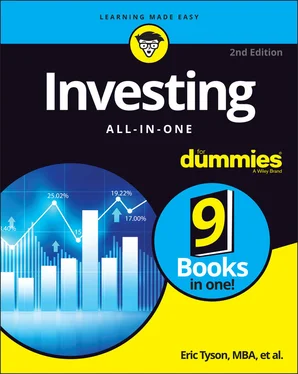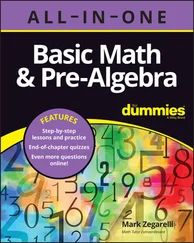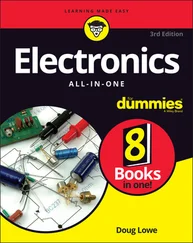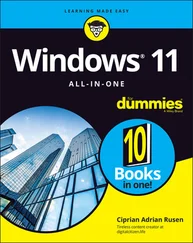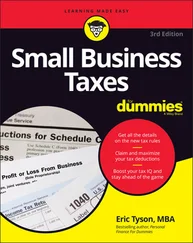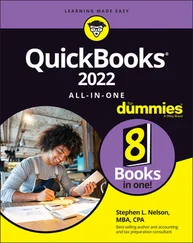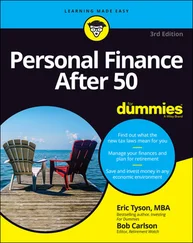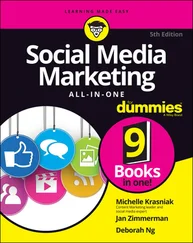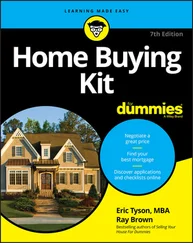Eric Tyson - Investing All-in-One For Dummies
Здесь есть возможность читать онлайн «Eric Tyson - Investing All-in-One For Dummies» — ознакомительный отрывок электронной книги совершенно бесплатно, а после прочтения отрывка купить полную версию. В некоторых случаях можно слушать аудио, скачать через торрент в формате fb2 и присутствует краткое содержание. Жанр: unrecognised, на английском языке. Описание произведения, (предисловие) а так же отзывы посетителей доступны на портале библиотеки ЛибКат.
- Название:Investing All-in-One For Dummies
- Автор:
- Жанр:
- Год:неизвестен
- ISBN:нет данных
- Рейтинг книги:3 / 5. Голосов: 1
-
Избранное:Добавить в избранное
- Отзывы:
-
Ваша оценка:
- 60
- 1
- 2
- 3
- 4
- 5
Investing All-in-One For Dummies: краткое содержание, описание и аннотация
Предлагаем к чтению аннотацию, описание, краткое содержание или предисловие (зависит от того, что написал сам автор книги «Investing All-in-One For Dummies»). Если вы не нашли необходимую информацию о книге — напишите в комментариях, мы постараемся отыскать её.
Investing All-in-One For Dummies
.
Dummies
Investing All-in-One For Dummies
Investing All-in-One For Dummies
Investing All-in-One For Dummies — читать онлайн ознакомительный отрывок
Ниже представлен текст книги, разбитый по страницам. Система сохранения места последней прочитанной страницы, позволяет с удобством читать онлайн бесплатно книгу «Investing All-in-One For Dummies», без необходимости каждый раз заново искать на чём Вы остановились. Поставьте закладку, и сможете в любой момент перейти на страницу, на которой закончили чтение.
Интервал:
Закладка:
One reason why bank customers have gotten worse terms on their accounts is that they gravitate toward larger banks and their extensive ATM networks so they can easily get cash when they need it. These ATM networks (and the often-associated bank branches) are costly for banks to maintain. So you generally pay higher fees and get lower yields when you’re the customer of a bank with a large ATM network, especially a bank that does tons of advertising.
By using a debit card that carries a Visa or Mastercard logo, you won’t need to access and carry around much cash. Debit cards are widely accepted by merchants and are connected to your checking account. These cards can be used for purchases and for obtaining cash from your checking account.
Savings accounts and certificates of deposit
Banks generally pay higher interest rates on savings account balances than they do on checking account balances. But they have often lagged behind the best money market funds, offered by mutual fund companies and brokerage firms. Online banking is changing that dynamic, however, and now the best banks offer competitive rates on savings accounts.
The virtue of most savings accounts is that you can earn some interest yet have penalty-free access to your money. The investment won’t fluctuate in value the way that a bond will, and you don’t have early-withdrawal penalties, as you do with a certificate of deposit (CD).
The yield on bank savings accounts is generally pretty crummy. That’s why your friendly neighborhood banker will be quick to suggest a CD as a higher-yielding investment alternative to a bank savings account. They may tout the fact that unlike a bond, a CD doesn’t have fluctuating principal value. CDs also give you the peace of mind afforded by the government’s FDIC insurance program.
CDs pay higher interest rates than savings accounts because you commit to tie up your money for a period of time, such as six or twelve months, or three or five years. The bank pays you, say, 2 percent and then turns around and lends your money to others through credit cards, auto loans, and so on. The bank often charges those borrowers an interest rate of 10 percent or more. Not a bad business!
 Some investors (typically older ones who are worried about risk) use CDs by default without researching their pros and cons. Here are some drawbacks that your banker may neglect to mention:
Some investors (typically older ones who are worried about risk) use CDs by default without researching their pros and cons. Here are some drawbacks that your banker may neglect to mention:
Early-withdrawal penalties: When you tie up your money in a CD and later decide you want it back before the CD matures, a hefty penalty (typically, about six months’ interest) is usually shaved from your return. With other lending investments, such as bonds and bond mutual funds, you can access your money without penalty and generally at little or no cost.
Mediocre yields: In addition to carrying penalties for early withdrawal, a CD yields less than a high-quality bond with a comparable maturity (such as two, five, or ten years). Often, the yield difference is 1 percent or more, especially if you don’t shop around and simply buy CDs from the local bank where you keep your checking account.
Only one tax flavor: High-tax-bracket investors who purchase CDs outside their retirement accounts should be aware of a final and perhaps fatal flaw of CDs: The interest on CDs is fully taxable at the federal and state levels. Bonds, by contrast, are available in tax-free (federal and/or state) versions, if you desire.
 You can earn higher returns and have better access to your money when it’s in bonds and bond funds than you can when it’s in CDs. Bonds make especially good sense when you’re in a higher tax bracket and would benefit from tax-free income in a nonretirement account. CDs may make sense when you know, for example, that you can invest your money for, say, two years, after which time you need the money for some purchase that you expect to make. Just make sure you shop around to get the best interest rate from an FDIC-insured bank. If having that U.S. government insurance gives you peace of mind, consider investing in Treasury bonds, which tend to pay more interest than many CDs.
You can earn higher returns and have better access to your money when it’s in bonds and bond funds than you can when it’s in CDs. Bonds make especially good sense when you’re in a higher tax bracket and would benefit from tax-free income in a nonretirement account. CDs may make sense when you know, for example, that you can invest your money for, say, two years, after which time you need the money for some purchase that you expect to make. Just make sure you shop around to get the best interest rate from an FDIC-insured bank. If having that U.S. government insurance gives you peace of mind, consider investing in Treasury bonds, which tend to pay more interest than many CDs.
Negotiating with Bankers
Especially at traditional brick-and-mortar banks in your local community, you may be able to get better terms and deals if you ask. Here’s a common example.
Suppose that for several years, you’ve had a checking account at your local bank and have not had any real issues or problems. Then one month, you end up bouncing several check payments (say, four at $30 each) because a deposit into your account didn’t clear in time. You may very well be able to get some or even all of these fees waived by pleading your case to the local branch manager. Explain how long you’ve been a good customer and why this was a one-time case of bad luck, something beyond your control, and so on. The worst that can happen is that the manager will turn down your request, and you’ll have wasted a few minutes of your day. More likely, however, is that you may save yourself $90 to $120 for a small amount of your time.
Deposit account terms and loan terms are harder to negotiate, but some folks have had some success even in those arenas. Your regular bank may offer better mortgage terms if it knows it needs to match or beat a more competitive offer from another bank you’ve shopped, for example.
Feeling Secure with Your Bank
Putting your money in a bank may make you feel safe for a variety of reasons. For your parents and your grandparents, the first investing experience was likely at the neighborhood bank where they established checking and savings accounts.
Part of your comfort in keeping your money in a bank may stem from the fact that the bank is where your well-intentioned mom and dad may have first steered you financially. Also, at a local branch, often within a short distance of your home or office, you find vaults and security-monitoring cameras to protect your deposits.
Bank branches cost a lot of money to operate. Guess where that money comes from? From bank depositors and the customers of the banks’ various services, of course! These operating costs are one of the reasons why the interest rates that banks pay often pale in comparison to some of the similarly secure alternatives discussed later in this chapter. This also explains why an online bank may be your best choice if you want to keep some of your money in a bank.
Evaluating any bank
Most folks know to look for a bank that participates in the U.S.-government-operated FDIC program. Otherwise, if the bank fails, your money on deposit isn’t protected. FDIC covers your deposits up to a cool $250,000.
 Some online banks are able to offer higher interest rates because they are based overseas and, therefore, are not participating in the FDIC program. (Banks must pay insurance premiums into the FDIC fund, which adds, of course, to a bank’s costs.) Another risk for you is that noncovered banks may take excessive risks with their business to be able to pay depositors higher interest rates.
Some online banks are able to offer higher interest rates because they are based overseas and, therefore, are not participating in the FDIC program. (Banks must pay insurance premiums into the FDIC fund, which adds, of course, to a bank’s costs.) Another risk for you is that noncovered banks may take excessive risks with their business to be able to pay depositors higher interest rates.
When considering doing business with an online bank or a smaller bank you’ve not heard of, you should be especially careful to ensure that the bank is covered under FDIC. Don’t simply accept the bank’s word for it or the display of the FDIC logo in its offices or on its website.
Читать дальшеИнтервал:
Закладка:
Похожие книги на «Investing All-in-One For Dummies»
Представляем Вашему вниманию похожие книги на «Investing All-in-One For Dummies» списком для выбора. Мы отобрали схожую по названию и смыслу литературу в надежде предоставить читателям больше вариантов отыскать новые, интересные, ещё непрочитанные произведения.
Обсуждение, отзывы о книге «Investing All-in-One For Dummies» и просто собственные мнения читателей. Оставьте ваши комментарии, напишите, что Вы думаете о произведении, его смысле или главных героях. Укажите что конкретно понравилось, а что нет, и почему Вы так считаете.
